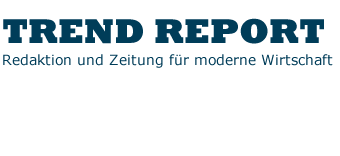Content Authenticity Initiative versus Fake News
How Digital Content Provenance and Attribution are Combatting Disinformation
by Santiago Lyon
We are witnessing extraordinary challenges to trust in the media. Knowing how and who made a piece of content is critical to ensuring transparency, understanding, and trust.
As the speed of digital content increases and technology advances, powerful creation, editing and distribution techniques are more available than ever – with the same tools used to make and share legitimate content also being deployed to create and spread disinformation or misinformation. With the Content Authenticity Initiative (CAI), we aim to build trust by providing creators, publishers, and consumers with a simple, reliable method of determining the authenticity of content.
CAI = Content Authenticity Initiative

The CAI is a community of major media and technology companies, NGOs, academics and others working to promote and drive adoption of an open industry standard around content authenticity and provenance (which details the origin and edit history of a piece of content). The goal is to ensure that creators have a secure way to get credit for their work and consumers are equipped with the tools to determine which content to trust.
Founded in 2019 by Adobe through a partnership with Twitter and The New York Times Company, our mission is to bolster trust in digital media content (images, video, etc.) by adding robust, tamper-evident provenance data about how a piece of content was produced, edited, and published.
Since our inception, we’ve seen steady growth of membership. The CAI ecosystem now exceeds 650 members that collaborate, participate in events, and exchange ideas on how to best tackle mis- and disinformation. We’re joined by major media organizations like DPA, Stern, Agence France-Presse (AFP), BBC, Getty Images, McClatchy, The Washington Post, VII Photo, and others.
On the technology side, we have participation from Arm, CameraBits, Impressions, Metaphysic.ai, Microsoft, Nikon, Qualcomm, Reface, Smartframe, Synthesia, Truepic, and Wacom — among a host of others. In many cases, CAI members are working to implement digital provenance in their solutions.
>>> Lesen Sie hier den Artikel in Deutsch
„CAI’s approach is helping restore trust in online content and supporting creators.“
Santiago Lyon
Content Credentials
The CAI is also driving adoption of the world’s first open industry standard for verifying content authenticity across digital media as part of the Coalition for Content Provenance and Authenticity (C2PA), a standards organization comprised of media and technology companies including Adobe, Arm, BBC, Intel, Microsoft, Truepic, and Twitter.
The CAI is creating a digital chain of custody for photography, video, and other file types from creation to publication. Images and video will be published in both traditional and social media with public-facing CAI metadata, called “Content Credentials,” that will expose relevant information about the image’s provenance and authenticity to the viewer. From the moment of creation, images (and eventually other file types) will include indelible CAI metadata accompanying the content wherever it goes – from the point of creation through editing and publication or sharing. Once Content Credentials are embedded in a piece of content, consumers can authenticate it using the CAI’s Verify website to view the content credentials showing what (if anything) was altered.
We launched the CAI’s Content Credentials as a public beta in Adobe Photoshop in October 2021, alongside support in other Adobe tools including Behance and Adobe Stock. This feature is now available in beta for all Photoshop users, the first time CAI technology is being brought to a wide audience.
Coming soon…
Soon, any interested individual, organization, or company will be able to access open-source offerings from the CAI to utilize our code for content provenance across various applications – without licensing or intellectual property concerns. Find out more and sign up for updates on our site here. If you or your company are interested in the CAI’s work, you can join us for free as a member to have access to our events and updates and get access to collaborate with our team on your projects.
„With digital content provenance and attribution, we have a way forward.“
While no one company or organization can solve the real and growing problem of fake content and mis- and disinformation, the CAI’s approach is helping restore trust in online content and supporting creators. Addressing this issue will require ongoing collaboration between content creators, academia, researchers, technology providers, government, and content distributors. With digital content provenance and attribution, we have a way forward.
https://contentauthenticity.org/
Aufmacherbild/ Quelle / Lizenz
https://pixabay.com/photos/original-sign-label-character-960525/











Kommentare sind deaktiviert.